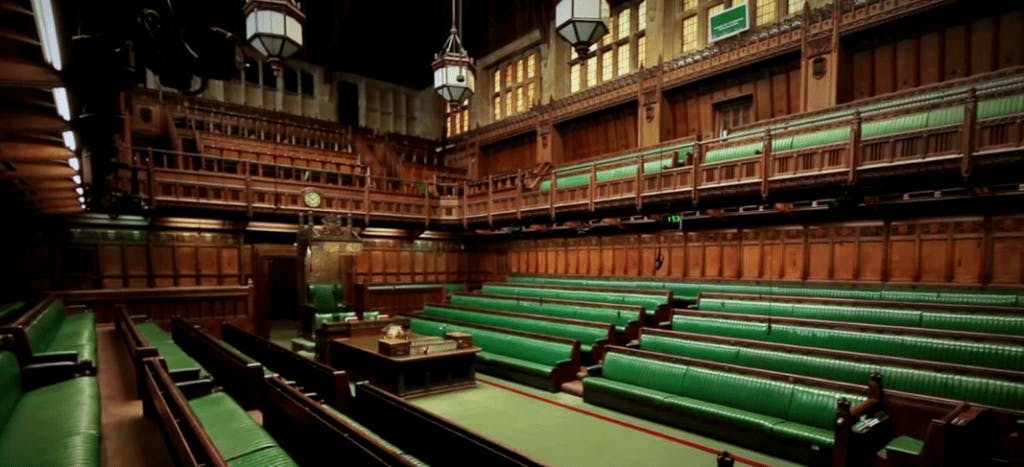Countdown To Aesthetics Regulation: A Timeline

The government is expected to release its plans to introduce aesthetics regulation in England by July 2023.
As we all eagerly await this hotly anticipated, and greatly needed, news, let’s take a look at what led us to this point.
Here’s a brief overview of the key points in the timeline of trying to bring about change to the non-surgical aesthetics industry. We’ve also included insights as to where Harley Academy and our flagship Level 7 in Botox & Dermal Fillers qualification fits into the story…

Aesthetics regulation timeline so far
April 2013: The Keogh Report is published
A Department of Health report, prepared by a committee chaired by Sir Bruce Keogh, is published in April 2013. This review of the regulation of non surgical aesthetic procedures in the UK, notes that “a person having a non-surgical cosmetic intervention has no more protection and redress than someone buying a ballpoint pen or a toothbrush”. Various recommendations are put forward with the intention of increasing patient safety through “high quality care”.
November 2015: Health Education England (HEE) reports published
In November 2015 a series of reports, commissioned by the Department of Health were published by Health Education England (HEE). These were “aimed at improving and standardising the training available” and to set out qualification requirements for non-surgical aesthetics practitioners.
December 2015: Level 7 in Injectables is written
Dr Tristan Mehta created the Level 7 in Injectables. This Master’s level post-graduate qualification for doctors, dentists and nurses was built around the newly published HEE framework.
2016: Harley Academy is founded
Dr Tristan Mehta, pictured below, founds Harley Academy in order to deliver his vision for the Level 7 in Injectables. Only doctors, dentists and nurses are accepted onto this high-level medical aesthetics training course which comprises real clinical practice through extensive one-to-one mentoring in a functioning clinic. In 2017, Cosmetic Dermatology courses are added to the menu of Botox & dermal Filler training options. Again, these are only available to licensed doctors, dentists and nurses.
Now, in 2023, Harley Academy is the biggest provider of postgraduate aesthetic medicine training in the UK, with more Level 7 graduates than anyone else. Dr Tristan Mehta continues to head up a constantly growing faculty of passionate aesthetics educators. These medics support and maintain the company’s reputation as Level 7 specialists, at the forefront of safe, evidence-based practice.
2016: Level 7 in injectables becomes Ofqual-regulated
The Level 7 in Injectables becomes the first aesthetic medicine qualification to be Ofqual regulated. As a result, the qualification is able to be delivered by all appropriate training bodies, including universities.

April 2016: GMC publishes guidance for cosmetic doctors
The UK’s General Medical Council (GMC) published guidance for doctors who practice aesthetic medicine. These included highlighting the need for face-to-face consultations and responsible marketing of treatments. Allowing patients a “cooling off period” was recommended, along with be mindful of the psychological drivers for cosmetic treatments and taking particular care when treating younger patients.
2018: JCCP appoints Harley Academy as its first approved training provider
Respected industry body, the Joint Council of Cosmetic Practitioners (JCCP) is a respected industry body dedicated to improving patient safety and practitioner education in the world of non-surgical aesthetic procedures. They are known for their pivotal role in lobbying the government for regulatory changes. In 2018 the JCCP appoints Harley Academy as its first approved training provider.
2019: Harley Academy is appointed a preferred training partner to Allergan
Allergan Aesthetics, the AbbVie company responsible for leading aesthetic medicine products such as Botox and the Juvéderm range of dermal fillers, appoints Harley Academy as a preferred UK training provider.
March 2021: JCCP publishes 10 Point Plan
The JCCP published a 10 Point Plan report, which was essentially a wishlist of regulations and improvements to the UK aesthetics sector. These backed a medics-only approach, and a minimum standard of dedicated aesthetics training for all practitioners, as well as licensing for each practitioner and their premises.
July 2021: APPG Inquiry publishes findings and recommendations
An All-Party Parliamentary Group (APPG) was set up to represent the rights of the UK beauty and medical aesthetics industries in Parliament. Following a year-long inquiry into how these treatments are currently performed, this group published its findings and recommendations. These included the need to establish a minimum standard of education for aesthetics practitioners to improve patient safety.

October 2021: Cosmetic injectable treatments banned for under 18s
The first significant piece of aesthetics legislation set a minimum age of 18 years for patients seeking cosmetic injectables. This came into law in October 2021, following pressure from lobbying groups and individuals across the industry, as well as members of the public and a dedicated campaign by The Sun newspaper. The law covers offering consultations as well as the actual treatments themselves.
April 2022: Health & Care Act made law
An new Bill, entitled the Health & Care Act 2022, received Royal Assent in April 2022, establishing it as an Act of Parliament (law). This laid the groundwork for non-surgical aesthetics regulation to go ahead. It made it possible for a licensing scheme, covering aesthetics practitioners and their premises, to be made law.
April 2022: Government announces aesthetics inquiry
Following the passing of the Health & Care Act 2022, the government announced an inquiry into the non-surgical aesthetics industry. This was to establish an understanding of the current issues and scope for regulatory changes, which its outcome would inform. It was stated that aesthetics regulation would be determined following consideration of the inquiry’s outcomes.
August 2022: Select Committee publishes report with recommendations for aesthetics regulation
The Health and Social Care Select Committee Report on the Impact of Body Image on Mental and Physical Health was published on 2 August 2022. It comprised the Health and Social Care Select Committee’s recommendations for regulating non surgical aesthetics procedures in the UK. Many echoed the JCCP’s 10 Point Plan.
January 2023: Government confirms commitment to licensing aesthetics practitioners
On 30th January 2023, the government confirmed its commitment to licensing the non-surgical aesthetics sector. This would be by way of introducing mandatory licences for both aesthetics practitioners and their premises. Details of licensing requirements, such as a minimum standard of education, were not provided. Parliamentary Under-Secretary of State for Mental Health and Women’s Health Strategy, Maria Caulfield advised that “departmental officials will work as quickly as possible to introduce the licensing scheme and will consider all the important areas.”

February 2023: Aesthetics regulation plan date announced
The government released an official response to the Department of Health and Social and Care Committee (HSCC) 2022 report on the impact of body image on mental and physical health. It advised that it would release details of its plans for regulating the non-surgical aesthetics sector “by July 2023”. In the same document, it noted there were “no current plans” to make dermal fillers prescription-only.
What does this mean for aesthetics practitioners?
As yet, no-one knows. Whilst the government has confirmed its intention to follow a licensing scheme pathway, other elements of regulation remain unconfirmed. Additionally, the details as to the requirements needed to be awarded a licence to practice aesthetics have not been released either.
It has been rumoured for a number of years that, due to the Level 7 in Injectables being based on the original Health Education England guidelines, that this may be announced as the minimum level of qualification required for UK aesthetics practitioners.
That said, this course is only available to healthcare professionals and the government has not taken a public position as to whether non-medics should be able to continue administering injectable treatments.
We await the official announcement regarding the government’s plans to regulate the non-surgical cosmetic industry. As always, we’ll bring you all the details both here and on our social media channels.
All information correct at the time of publication
Download our full prospectus
Browse all our injectables, dermal fillers and cosmetic dermatology courses in one document
By submitting this form, you agree to receive marketing about our products, events, promotions and exclusive content. Consent is not a condition of purchase, and no purchase is necessary. Message frequency varies. View our Privacy Policy and Terms & Conditions
Attend our FREE open evening
If you're not sure which course is right for you, let us help
Join us online or in-person at our free open evening to learn more
Our Partners












STAY INFORMED
Sign up to receive industry news, careers advice, special offers and information on Harley Academy courses and services

